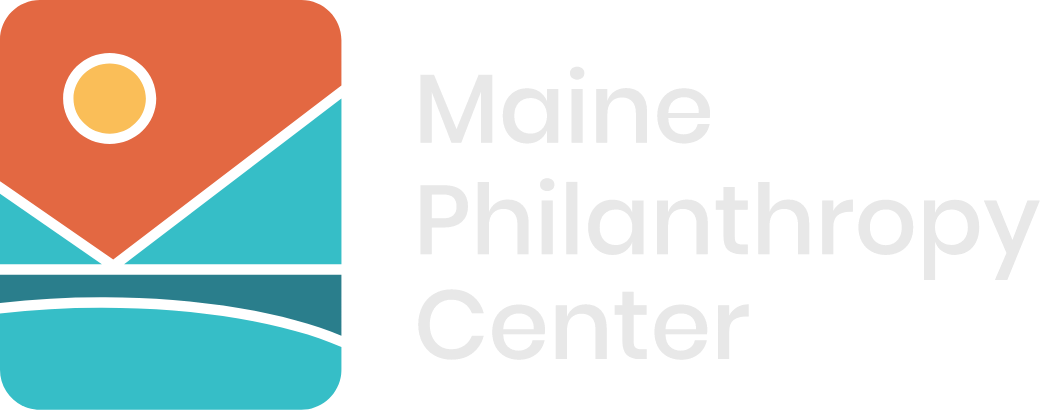This event has already occurred.
On March 4, 2015, MPC invited funder colleagues to gather with representatives of Maine's tribal communities, Maine-Wabanaki REACH, and the Maine-Wabanaki State Child Welfare Truth and Reconciliation Commission at the Nick Sapiel Building on Indian Island. The event was designed for funders to learn from the Tribes, REACH, and the TRC about:
- how the relationships established among the Tribes and the organizations working with them have the potential to create deeper systemic change;
- themes developed through the work of the Tribes and the TRC;
- the vision REACH has for continuing their work into the future;
- and the impact funders have had on deepening the knowledge of the needs of the Tribal communities.
The day began with Esther Attean and Penthea Burns introducing the discussion through a “four slips” activity that set a tone of openness and reflection for the day. Discussion concluded with a sharing circle led by Maria Girouard. In between there was great exchange, listening, and learning—and eating! Esther Attean cooked a delicious meal for the 30 attendees.
Maine Philanthropy Center is thankful to our members for participating, and especially thankful to the representatives of the Truth and Reconciliation Commission (gkisedtanamoogk, Gail Werrbach, Carol Wishcamper) and representatives from Maine-Wabanaki REACH (Co-Directors: Esther Attean, Passamaquoddy from Sipayik; and Penthea Burns; Health and Wellness Coordinator Maria Girouard, Penobscot Nation; Community Organizers: Dena Joseph, Aroostook Band of Mic Macs, Krista Stevens, Aroostook Band of Mic Macs, Wenona Lola, Penobscot Nation). Thank you to representatives of Wabanaki Health & Wellness: Sharon Tomah, Passamaquoddy from Sipayik and Newell Lewey, Passamaquoddy from Sipayik and to Maine-Wabanaki REACH members Erlene Paul, Penobscot Nation, and Luke Joseph, Aroostook Band of Mic Macs Child Welfare Director for joining us as well.
Below find additional resources about the work of the Truth and Reconciliation Commission and Maine-Wabanaki REACH, as well as information on philanthropy and tribal communities and sources referenced during the March 4 program.
What is Maine-Wabanaki REACH?

Maine-Wabanaki REACH is a cross-cultural collaborative comprised of staff from the State of Maine Office of Child and Family Services (OCFS) and Wabanaki child welfare programs, Wabanaki Health and Wellness, and the Wabanaki Program. REACH established the Maine Wabanaki-State Child Welfare Truth & Reconciliation Commission (TRC), which has until November 2015 to investigate and issue a report on Wabanaki experiences with Maine State child welfare.
What is a Truth and Reconciliation Commission (TRC)?

A truth and reconciliation commission (TRC) is a group of people brought together to find out about a specific problem, and the factors that went into creating that problem.
After it first emerged in the 1970s, the TRC process gained wider recognition in the 1990s when Nelson Mandela, Desmond Tutu and others led efforts to help South Africa address the effects of apartheid. Today, the process is widely recognized as an effective way to begin the work of understanding and dealing with difficult, painful events.
Its success relies largely on first-hand accounts to document what happened. This testimony creates more understanding by bringing in many, varied voices. The act of telling, and of having one’s own experience seen and recorded, can also be a vibrant opportunity for healing and change.
This TRC is focused on what has happened to Wabanaki children and families between now and 1978, when the Indian Child Welfare Act (ICWA) was passed. It is specifically centered on the State of Maine’s child welfare practices.
Learn more about the Truth & Reconciliation Commission
More Resources and Further Reading:
- Chapter: “The Maine-Wabanaki Child Welfare Truth and Reconciliation Commission, Perceptions and Understandings” from Indigenous People's Access to Justice, Including Truth and Reconciliation Processes (Columbia University, 2014)
- Article: “Examining the Potential for an American Truth and Reconciliation Commission,” from the Carnegie Council for Ethics in International Affairs. The article highlights REACH and its role in relation to the Maine Wabanaki-State Child Welfare TRC.
- Report: "Philanthropy & Tribal Communities: Building Stronger Linkages," a report of work undertaken in 2013 by the Maine Philanthropy Center to begin to forge stronger connections between the two communities.
- Article: “Unsettled: Triumph and Tragedy in Maine’s Indian Country,” the Portland Press Herald’s 2014 series by Colin Woodard with photographs by Gabriel Souza.
- Esther’s Recipes from lunch
- Upcoming Public Forums on the Findings of the Maine Wabanki-State Child Welfare TRC
